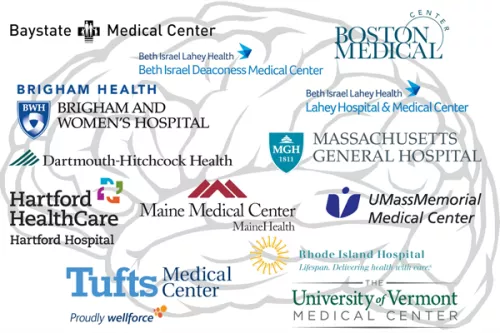To the citizens of New England, hospital leaders, fellow clinicians, emergency medical service professionals and all essential workers on the frontlines of the COVID-19 pandemic:
Faced with this unprecedented crisis, we have worked to ensure the safety and health of all citizens of our region. With strong local and regional leadership, we successfully mobilized resources for hospitals and other healthcare facilities bearing the brunt of the first pandemic surge. As a result, despite the need to divert extensive resources to combat COVID-19, we have not compromised the care of the patients that we are equipped to treat, including those with disabling and life-threatening strokes.
In preparation for the surge, leaders and representatives of regional stroke centers that provide the highest levels of care joined in cooperation to form the New England CSC Collaborative. We decided to work together to ensure continued access to advanced therapies for patients with stroke in the event that our centers were overwhelmed by the pandemic. Our concerns emerged from preceding experiences in China, Italy and concurrent events in New York. Our centers risked exceeding ICU bed capacity or losing our doctors, nurses and technologists to the virus. During the first COVID-19 surge, several CSCs had to pause admissions of new patients for several days due to limited numbers of ICU beds. Cooperation between members of the Collaborative allowed prompt redirection of stroke patients to other CSCs able to provide urgent life-saving treatment. As a result, in our region, no patient presenting to a CSC with severely disabling stroke went untreated as collateral damage of the pandemic.
Given concerns about the persistent and future impact of COVID-19, we are continuing this collaboration as part of our community effort to adapt to this crisis. Just as we pledge to ensure the best treatment for stroke, we urge you to continue to respond with utmost speed when you recognize the signs and symptoms of this severe disease. Rapid response is critical at all levels:
- Emergency Medical Services should continue to bring people with stroke symptoms emergently to the hospital and help them understand that hospitals have multiple systems in place to keep them safe from COVID-19 exposure. A recent study at a Massachusetts CSC showed that the risk of acquiring coronavirus infection from a hospitalization was extremely low.
- Primary care and urgent care clinicians should continue to transfer patients to Emergency Departments immediately when they present with signs and symptoms of stroke.
- If you have stroke risk factors (high blood pressure, elevated cholesterol, diabetes, smoking, atrial fibrillation), please continue to work with your doctors to reduce your chances of having a stroke. If you or a loved one lives alone, please check in with your support network regularly to minimize the chances of stroke symptoms going unrecognized and unaddressed.
- And, most critically, we all must understand that presenting to a hospital immediately offers the best chance of recovery from stroke. COVID-19 should not deter you from seeking help.
We pledge to you that we will work together to ensure the best possible treatment for patients with stroke despite the challenges of the COVID-19 pandemic and future threats. We ask that all hospitals continue to use their existing referral pathways for acute stroke treatment. Coordination for re-routing will occur at the level of the CSCs if needed.
We are prepared in the event the pandemic surges again in our states. We remain united against this common threat. We ask that you do your part: wear masks, practice hand hygiene, physically distance and remain vigilant for signs and symptoms of stroke. The New England CSC Collaborative will continue to serve in the fight against stroke during the COVID-19 pandemic and beyond.
